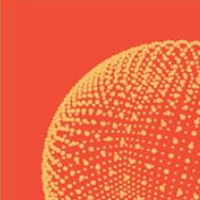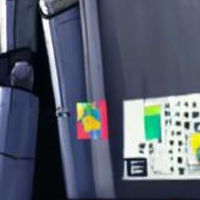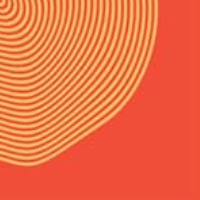In this conversation, provoked by Jon Ippolito's essay "Does Education Really Require the F-Word?", researcher-educators Jon Ippolito, Annette Vee, Maha Bali, Jeremy Douglass, Mark C. Marino, and Marc Watkins discuss the role of friction in higher education after the dawn of generative AI.
In this essay, Jon Ippolito discusses the meaning of "friction" in the context of higher education, via an exploration of what friction entails, what varieties are beneficial for students, and what aren't. In doing so, he creates the starting point for conversation in "Friction and Education: The Discussion".
Using Jon Ippolito's essay "Writing As Thinking—By Proxy" as a vehicle for discussion, researcher-educators Anna Mills, Mark C. Marino, Maha Bali, Jeremy Douglass, Annette Vee, Marc Watkins and Ippolito discuss the impact of AI's emergence in higher education and the many strategies they're employing to foster healthy writing practice with and without AI.
In this provocation, Jon Ippolito questions what human capabilities AI extends and what capabilities it removes. In doing so, he charts the evolution of human writing processes alongside technology while speculating on what future human writing practices will look like.
Daniel Johannes Rosnes' playful review of Kyle Booten's Gyms sees Rosnes at the mercy of an AI writing companion, who aides his reflection on the exercises Booten provides and the ways in which they reveal the potentialities and pitfalls of large language models.
In his speech from Joseph Tabbi's festschrift in May 2025, Daniel Johannes Rosnes discusses his brief time spent working with Tabbi, covering the trust and responsibility he was immediately offered to the importance of Tabbi's view of publishing as a collaborative effort, formed by a "network of people".
In this review, Deena Larsen provides a fantastic overview of N. Katherine Hayles' latest book, Bacteria to AI. By diving deep into the panpsychic realities of Hayles's views on cognition, Larsen ultimately questions whether electronic literature could be integral to understanding the umwelt(s) of AI.
Taking a trip to the first page of publications available on the current ebr website, Cary Wolfe frames electronic book review as an overlapping network of people connected over a lifetime by Joseph Tabbi. A network Wolfe himself became involved with after spotting a magazine notice in the 1990s.
In this recollection—published as part of the Celebrating Joseph Tabbi gathering—Kurt Heintz chronicles the early days of a strand of the electronic literature community as it moves from Chicago's Belmont Avenue to the UCLA'S 2002 ELO Conference. In doing so, Heintz argues that, then and now, Joseph Tabbi acts a vital point of convergence for the electronic literature field.
In this insightful interview, Rob Wittig, Mark Marino, and ChatGPT—prompted into the far wittier persona of Chatty G—discuss LLM assisted writing processes, the dangers of extreme empathy post-AI, and the influence of netprov on Hallucinate This! An Authoritized Autobotography of ChatGPT.
In this interview—part of a series initiated by The NEXT—author Deena Larsen and academic N. Katherine Hayles discuss Hayles' involvement in the formation of the academic field of electronic literature, Hayles' approach to literary critique, and the reduction of anthropocentric bias in conceptions of cognition.
Jan Baetans delivers a personal message to ebr's co-founder and long-time editor-in-chief, Joseph Tabbi, celebrating his retirement. Describing Tabbi as "the ideal today of the digital humanities," Baetans celebrates Tabbi's ability to synergize traditional humanities methods with the digital turn.
In a print version of his speech given at Joseph Tabbi's festschrift, Nick Montfort discusses Tabbi’s instrumental role in the understanding of index-card-based composition and collaborative glossary development. In doing so, Montfort both contrasts and connects these two disparate means of writing, while arguing that Tabbi led a second life as a cyberpunk, thanks to the founding of ebr.
Continuing the celebration of Joseph Tabbi's work, John Cayley discusses Tabbi's foresight and ability to gather his peers together, which led to the creation of vital knowledge infrastructure for the blossoming field of electronic literature.
N. Katherine Hayles, in a personal contribution to the Celebrating Joseph Tabbi gathering, details the many ways her and Tabbi's paths have crossed over the decades. Noting the changes she's observed in Tabbi over time, Hayles reflects on the positive outcomes of aging.





